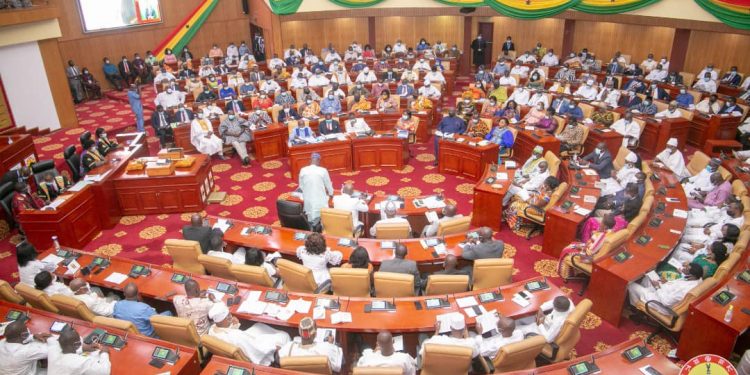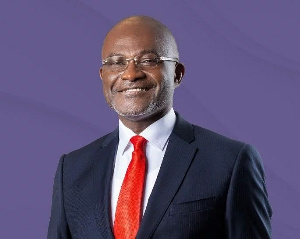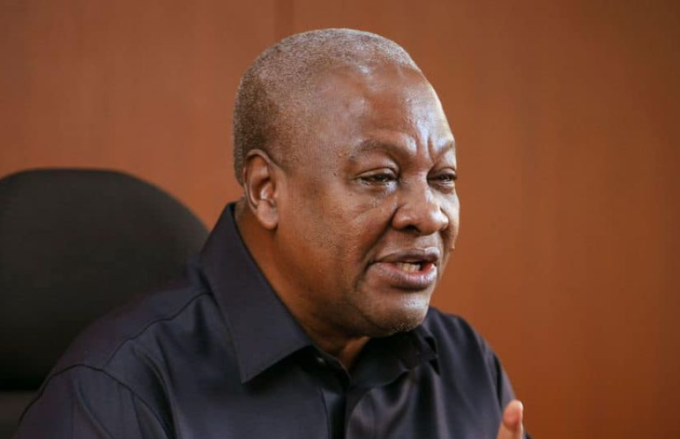
Sam George, the driving force behind Ghana’s harsh anti-LGBTQ legislation, portrays himself as a guardian of gay Ghanaians.
“I have put in legislation that protects the rights of gay people from being verbally and physically assaulted,” he said in an interview with CNN from Accra.
But despite his claims, the bill, signed into law late last month by Ghana’s parliament imposes severe penalties merely for identifying as LGBTQ, with fines or up to three years in prison. Someone convicted of “promoting” gay rights can get up to five years behind bars, according to the bill.
“They should have a fair hearing before a competent court of jurisdiction. It’s not in my power to imprison anybody. That’s for the judge,” George told CNN.
In a relatively short time, the opposition member of parliament, who represents a constituency of the greater Accra region and is the bill’s main sponsor, has become a well-known face in Ghana and a regular feature on television.
The passage of the Human Sexual Rights and Family Values act unopposed in parliament in late February is a resounding victory for George and a coalition of religious and secular conservatives in Ghana. It is also part of a worrying trend of homophobic bills sweeping the continent.
Many progressive groups believe that US right-wing organizations have pushed the legislation, an allegation recently investigated by CNN.
By his admission, George has traveled to the United States to meet with like-minded conservatives pushing “family values.” He says he covers his own expenses.
Making inequality legal
Whatever its origins, the bill’s passage is terrible news for LGBTQ Ghanaians.
“The sentiment and emotion we are expressing right now is sadness,” said Alex Kofi Donkor, the founder of LGBT+ Rights in Ghana, an advocacy group. “The passage of this bill is only going to give legitimacy to the inequality that we face here in this country.”
He says the bill, if it becomes law, would further impact access to legal and medical services in Ghana.
But even when it was first introduced in 2021, extensive reporting by CNN had shown a disturbing increase in beatings, evictions, and harassment of LGBTQ Ghanaians.
Now, it is up to President Nana Akufo-Addo: to sign or not to sign.
The question is, what will he do? In the context of local politics, Akufo-Addo faces difficult choices and competing pressure points.
After all, it’s an election year in Ghana, with polls set for early December.
On one side, you have politicians like George and a broadly conservative citizenry that will publicly goad the president to act. On the other, an international community poised to punish Ghana should Akufo-Addo sign.
Ghana can ill-afford punitive measures. A darling of multilateral lenders as recently as five years ago, rampant inflation and a colossal debt load have crushed Ghana’s economy, though there are tentative signs of improvement.
The government quickly pounced on the financial implications of the bill.
Soon after its passage, Ghana’s Ministry of Finance published an internal memo stating that “in total, Ghana is likely to lose US$3.8 billion in World Bank Financing over the next five to six years” because of the bill.
However, George disputes the ministry numbers. He points to the continued International Monetary Fund (IMF) line of credit to Uganda, despite that country’s own recently-passed homophobic law.
The World Bank, however, did suspend future financing in Uganda and the US State Department sanctioned Ugandans that were “undermining democracy and suppressing marginalized groups.”
“The problem with Ghana is not loans from multilateral institutions. The problem in Ghana is endemic corruption and overspending by government,” said George.
Ghana’s government spokesman could not be reached by CNN for comment.
A way out
While the Ministry of Finance appears to be offering the president an elegant way out, it’s the courts that could save him from making a choice.
In a recent address to diplomats in Ghana, Akuffo-Ado said that no decision will be taken on the bill until a challenge, brought by a Ghanaian lawyer, is heard at the country’s Supreme Court.
The president also made assurances that Ghana would not be “turning her back on, hitherto, enviable, longstanding record on human rights observance and attachment to the rule of law.”
“I want to assure you that no such back-sliding will be contemplated or occasioned,” he said, in audio obtained by CNN.
It is one thing to mollify foreign diplomats of Western capitals; it is quite another to be seen to be supporting LGBTQ rights in Ghana, where politicians and religious leaders have been whipping up homophobic sentiment.
Despite the bill’s alleged links to US groups, its supporters are also framing it as a matter of sovereignty – which can be a powerful political argument in Ghana.
“Ghana is not the 51st State of the United States or any other Western state. In the context of Ghana, we should not give rights to a person to practice a sexual preference other than what is natural and acceptable by society,” said George.
For Ghana’s president, navigating this intricate political landscape looks set to be a daunting – and unenviable – task.




